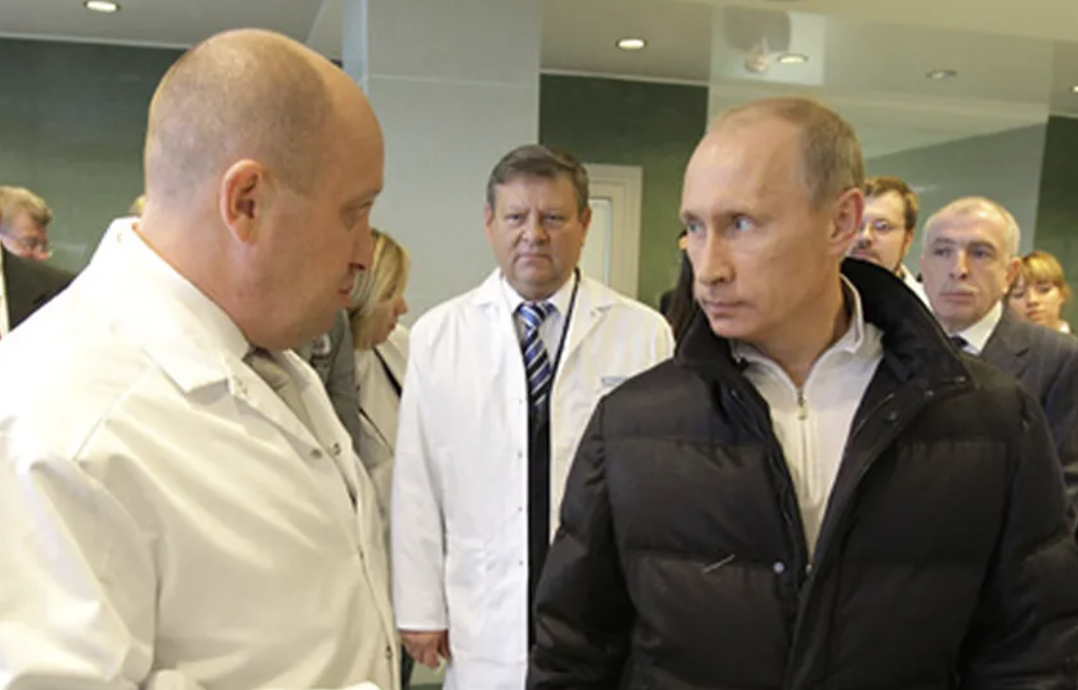Everybody wants a good obituary. Most, of course, just hope that their life’s story is about contribution, both to their family and community. And then there are a relatively few who want to be remembered for their use of power to achieve their great goals. Few, who actually have that vainglorious ambition, are honored by any pen other than their own.
Yevgeny Prigozhin began some months ago to make sure his story is different than Vladimir Putin’s. Essentially Godfather Prigozhin began to take on the leader of the powerful Russian intelligence and armed forces mob, Vladimir Putin.
Prigozhin began with criticism of Russia’s Ministry of Defense (MOD) and named names. Cell phones, the soldier’s news medium, lit up. He left Putin out of his attacks but was attacking functionaries that Putin put in place. With visual panache Prigozhin was challenging Putin’s MOD from the front lines adorned in military gear and derisive critiques. He had the appearance of a soldier’s soldier.
And Putin? Often as Covid wound down Putin was portrayed, at least in the West, sitting at an impossibly long table with functionaries at the other end. Translation: Putin is out of touch. His opposite, Ukraine’s Volodymyr Zelenskyy, wore the colors of Ukraine’s soldiers—olive drab.
Fast forward to last weekend. Prigozhin’s army, The Wagner Group, who had earned their reputation fighting successfully for Russia in its overseas ventures, were on the move, heading North. As they traveled, they met little resistance although along the way they shot down helicopters that were presumably a part of a force intended to halt their progress.
And then when most commentators were anticipating a civil war and the word was out that Putin had been flown out of Moscow on his private jet, The Wagner Group stopped. Confusion was not only evident in Russia but also with confident Russian experts who had predicted the beginning of a civil war. What was going on?
I am not a Russian expert by any definition, but like you I am familiar with obituaries. What is the story? How is it written? What will the historians say?
Prigozhin was acting his story. He doesn’t want it to be his obituary, but then only time separates our life story from our obit.
Putin, well he lost again—he called Prigozhin a traitor and then made a deal with him. He had begun the war anticipating Russia was going to take over Ukraine; it hasn’t. His aim was to improve Russia’s position vis-a-vis NATO; he has weakened it. Etc. Now he has once again been outmaneuvered.
Stories matter and the storyline on Putin is set. He will not last the year.
Prigozhin—who knows? My guess is he will survive. Indeed, I think his left turn to Belarus on the way to Moscow was about survival. Putin might not be able to prevail over Ukraine, but Prigozhin was not prepared to bet on his army’s survival and, of course, his own against Moscow forces.
Finally, and quickly, those in this country who have criticized our support for Ukraine and, beyond that, have suggested Russian leadership should be respected, that will be in their storyline. It is hard to change the line, but they should try.
Al Sikes is the former Chair of the Federal Communications Commission under George H.W. Bush. Al writes on themes from his book, Culture Leads Leaders Follow published by Koehler Books.



Mickey Terrone says
Mr. Prigozhin will be fine until, in about a month or so from now, he decides he can fly and he jumps out of an 18th floor window like numerous other Russians who challenge or even question Mr. Putin’s leadership.